
There’s a certain kind of game that doesn’t just entertain you—it haunts you. It lingers in your mind long after the credits roll. It makes you question not just what happened in the story, but your own perception of reality. That’s exactly the kind of experience KARMA: The Dark World delivers. This isn’t just a game—it’s a full-blown psychological descent into madness, memory, and moral ambiguity.
Set in a twisted version of 1984 East Germany, this first-person cinematic thriller puts you in the shoes of an investigator who doesn’t just analyze evidence—he dives straight into the minds of his subjects. With a narrative soaked in dystopian dread, government surveillance, and haunting personal trauma, KARMA: The Dark World is tailor-made for gamers who crave rich storytelling, emotional depth, and a uniquely immersive gameplay experience.
If you’re a fan of Hideo Kojima’s narrative complexity, David Lynch’s surrealism, or Christopher Nolan’s mind-bending plots, this game will hit you like a freight train full of dark emotions and impossible questions. Developed by the talented indie team Pollard Studio from Shanghai, this title doesn’t play by the rules—it redefines them. It’s the kind of game that whispers to you when you’re lying awake at night, replaying scenes in your head and wondering what was real.
Released on March 27, 2025, for PC and PlayStation 5, KARMA: The Dark World pushes the envelope in every way—visually, narratively, and emotionally. It’s not just a game you play; it’s a world you fall into. A place where memories become mazes, sanity slips through your fingers, and the truth hides in the corners of the mind.
So, if you’re ready for a journey that challenges your senses, tugs at your emotions, and makes you question everything—then KARMA: The Dark World is not just a game you should play. It’s a game you need to experience.
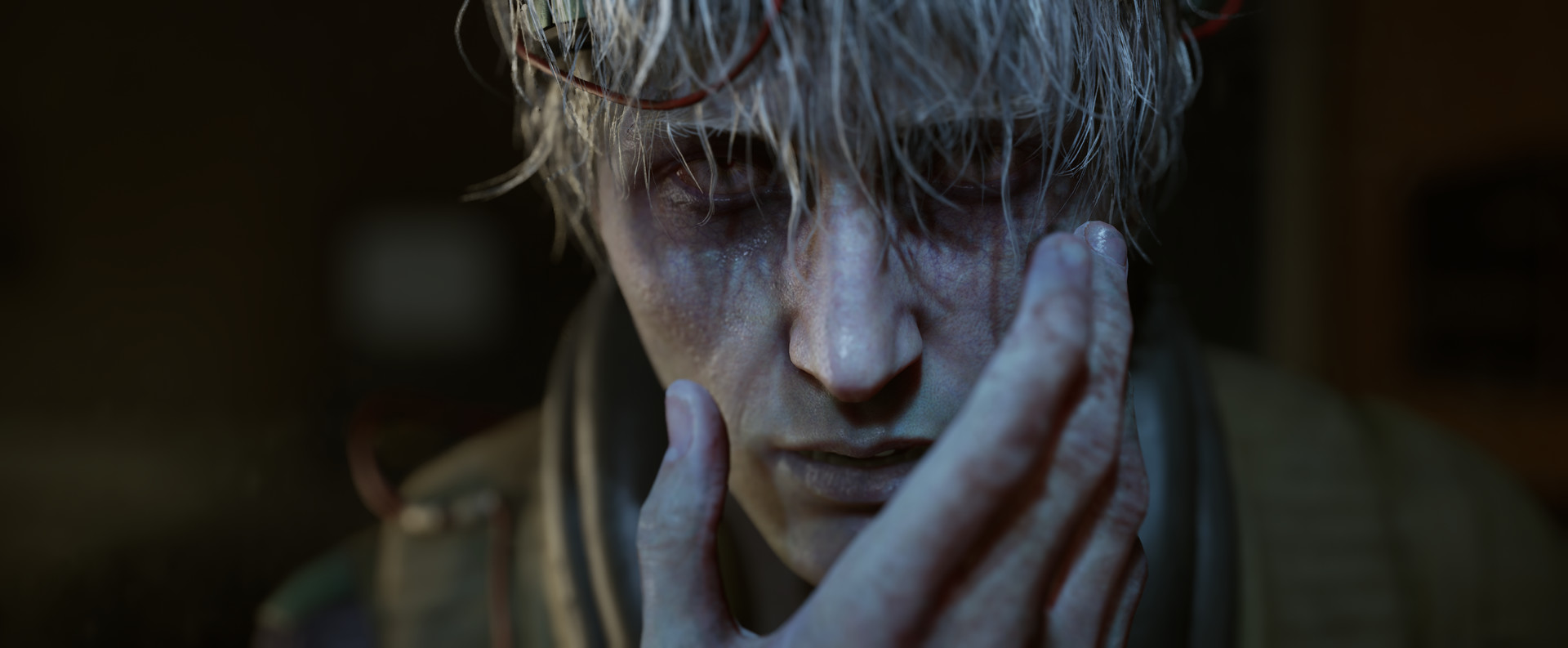
Step Into a Darker 1984: The Dystopian World of Leviathan Corporation
Imagine a world where your every move is watched, your every thought is questioned, and your sense of freedom is just an illusion carefully crafted by those in power. Now crank that tension up to eleven, add a thick layer of psychological manipulation, and you’ve got the bleak reality of KARMA: The Dark World.
Set in an alternate version of East Germany in the year 1984, this isn’t just dystopia—it’s dystopia done with chilling precision. The world is ruled by the shadowy and all-powerful Leviathan Corporation, an authoritarian regime that doesn’t just govern the people—it controls them on a molecular level. Using a terrifying blend of propaganda, class-based oppression, mass surveillance, and mind-altering drugs, Leviathan has crafted a society where obedience isn’t just encouraged—it’s demanded.
You don’t just play in this world—you exist in it. Every street corner feels like it’s watching you. Every billboard spews promises of salvation in exchange for loyalty. The city’s architecture is cold, brutal, and oppressive—massive concrete structures that seem to press down on the people living beneath them. And yet, there’s an eerie sense of calm. It’s the kind of calm that comes from being too afraid to act.
The citizens of this society live under the constant illusion of hope—namely, the promise of “Utopia,” a paradise reserved for those who prove their unwavering devotion to Leviathan. But Utopia itself is as mysterious as it is unreachable. No one seems to know where it is, how to get there, or if it even exists. It’s a modern myth, dangled in front of the population like a carrot on a stick, keeping them moving forward even as the world around them collapses.
In this twisted landscape, people turn to narcotic escapism. Drugs are not only tolerated—they’re pushed, manufactured, and distributed by Leviathan to numb the minds of the masses. Compliance becomes second nature when your mind is chemically shackled. This isn’t just political control—it’s psychological imprisonment.
And yet, despite all the control Leviathan enforces, cracks begin to show. Whispers of rebellion flicker through the shadows. Secrets swirl behind locked doors. That’s where you come in.
As Daniel McGovern, you work for Leviathan—not as a soldier, but as a Roam Agent for the regime’s Thought Bureau. Your job? To dig into the minds of those accused of treason, thought crimes, or general dissent. But while you start as part of the machine, the deeper you go, the more you realize that the truth Leviathan preaches doesn’t quite line up with the things you’re uncovering. The more memories you explore, the more rotten the core of this so-called utopia begins to look.
Leviathan’s world isn’t just a backdrop—it’s a character in itself. It breathes, it lies, it intimidates. And like all great dystopian settings, it challenges you to think: What would I do if I lived here? Would I resist? Or would I obey just to survive?
KARMA: The Dark World doesn’t just place you in a dystopia—it traps you there. And by the time you start to unravel the truth, the lines between justice, morality, and madness will already be hopelessly tangled.
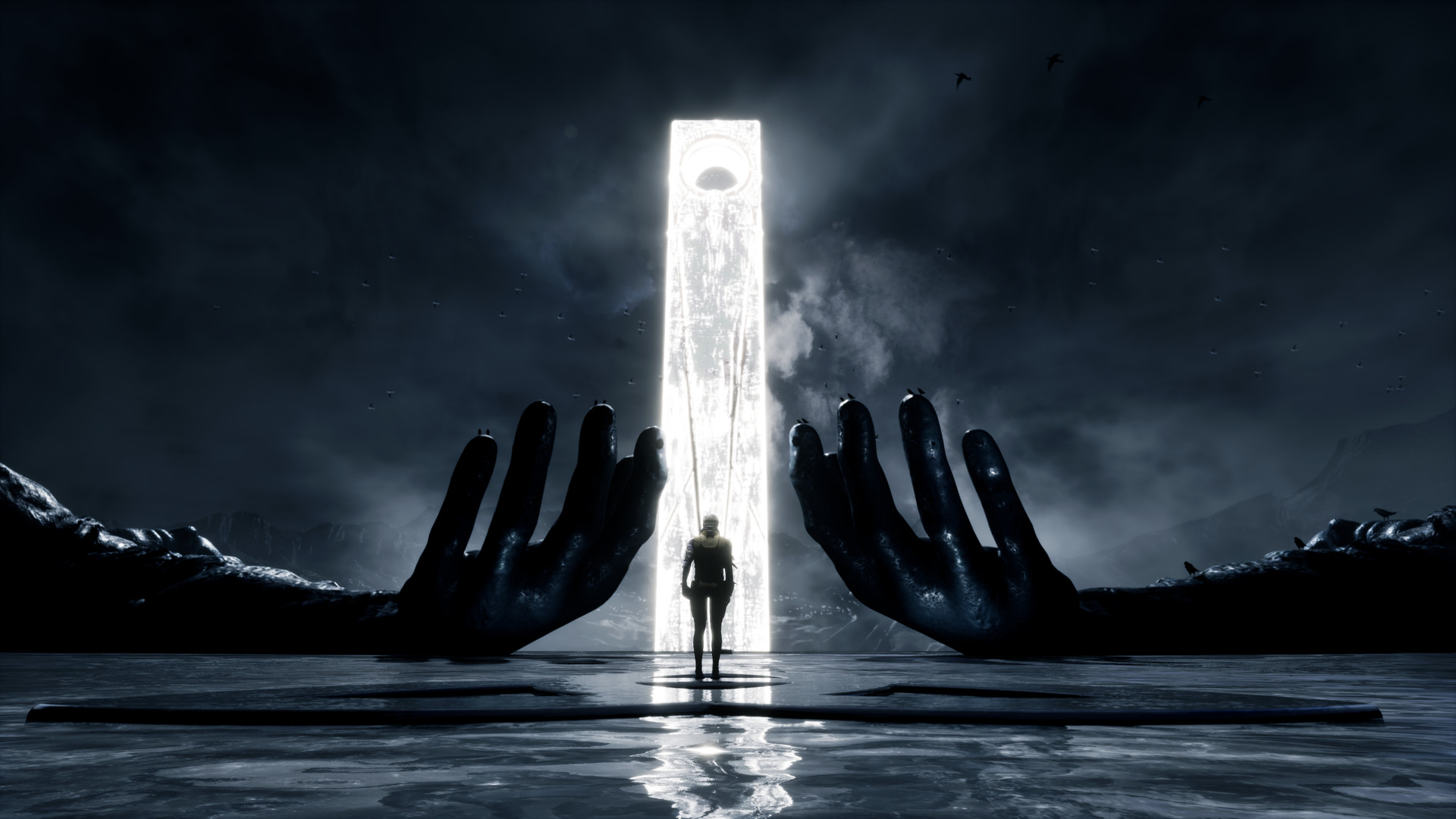
Enter the Mind of a Suspect: Unique Gameplay and Psychological Exploration
Forget everything you know about traditional detective gameplay. In KARMA: The Dark World, you’re not just collecting fingerprints or piecing together crime scene clues—you’re diving headfirst into the twisted, often terrifying inner worlds of the human mind. This is investigative work on a whole other level, and it’s where the game truly shines.
You play as Daniel McGovern, a Roam Agent with access to technology that allows you to literally “brain drive”—a term used to describe the process of entering a suspect’s memories and subconscious. This isn’t some clean, high-tech simulation, either. These mental landscapes are chaotic, distorted reflections of a person’s psyche, shaped by trauma, fear, guilt, and buried secrets. Each mind you enter is like walking into a living nightmare that only makes sense if you know how to read the symbols, emotions, and metaphors hiding in plain sight.
And here’s the twist: these memories aren’t presented like traditional flashbacks or cutscenes. You actively explore them in first-person, moving through surreal, often grotesque environments that feel more like abstract art installations than levels. Picture walking through a crumbling childhood bedroom where toys whisper your name, or navigating a never-ending hallway made entirely of mirrors, each one showing a different twisted version of the suspect. These aren’t just cool visuals—they’re symbolic puzzles you must solve.
As you explore, you’ll encounter interactive elements like cryptic notes, emotional echoes, environmental riddles, and sometimes even manifestations of repressed emotions—fear, anger, shame—that take physical form and challenge you directly. These aren’t “enemies” in the usual sense, but rather psychological obstacles that reflect the inner turmoil of the person you’re investigating.
Solving puzzles within these mental realms isn’t just a gameplay mechanic—it’s part of decoding the truth. Every object, sound, or visual detail might be a clue. A broken clock could symbolize lost time or suppressed guilt. A locked door might represent a memory too painful to revisit. It’s a world where your ability to observe and interpret human emotion becomes your greatest weapon.
But there’s a catch: the deeper you go into someone else’s mind, the more fragile your own grip on reality becomes. Daniel starts experiencing hallucinations and memory bleed, where fragments of the suspects’ thoughts start leaking into his own consciousness. You’ll begin to question what’s real, what’s imagined, and whether you’re even in control anymore. This blurring of reality and memory isn’t just part of the story—it’s part of the gameplay loop, and it’s brilliantly executed.
Between each brain drive, you return to a grim real world where you piece together the clues you’ve gathered and report your findings to Leviathan. But the line between fact and fabrication starts to wear thin. Do you tell the regime what they want to hear, or do you start resisting, even subtly, by leaving out key information or skewing the truth?
This moral tension adds yet another layer of complexity to the game. It’s not just about solving a case—it’s about navigating a morally gray landscape where every action could have consequences, and the wrong move could mean the end of your freedom… or your sanity.
In a genre often limited to physical threats and simple stealth mechanics, KARMA: The Dark World introduces a boldly cerebral form of horror—one where the most dangerous place isn’t a haunted house or a monster-infested corridor, but the deepest corners of the human mind. And once you enter, you may never come back the same.
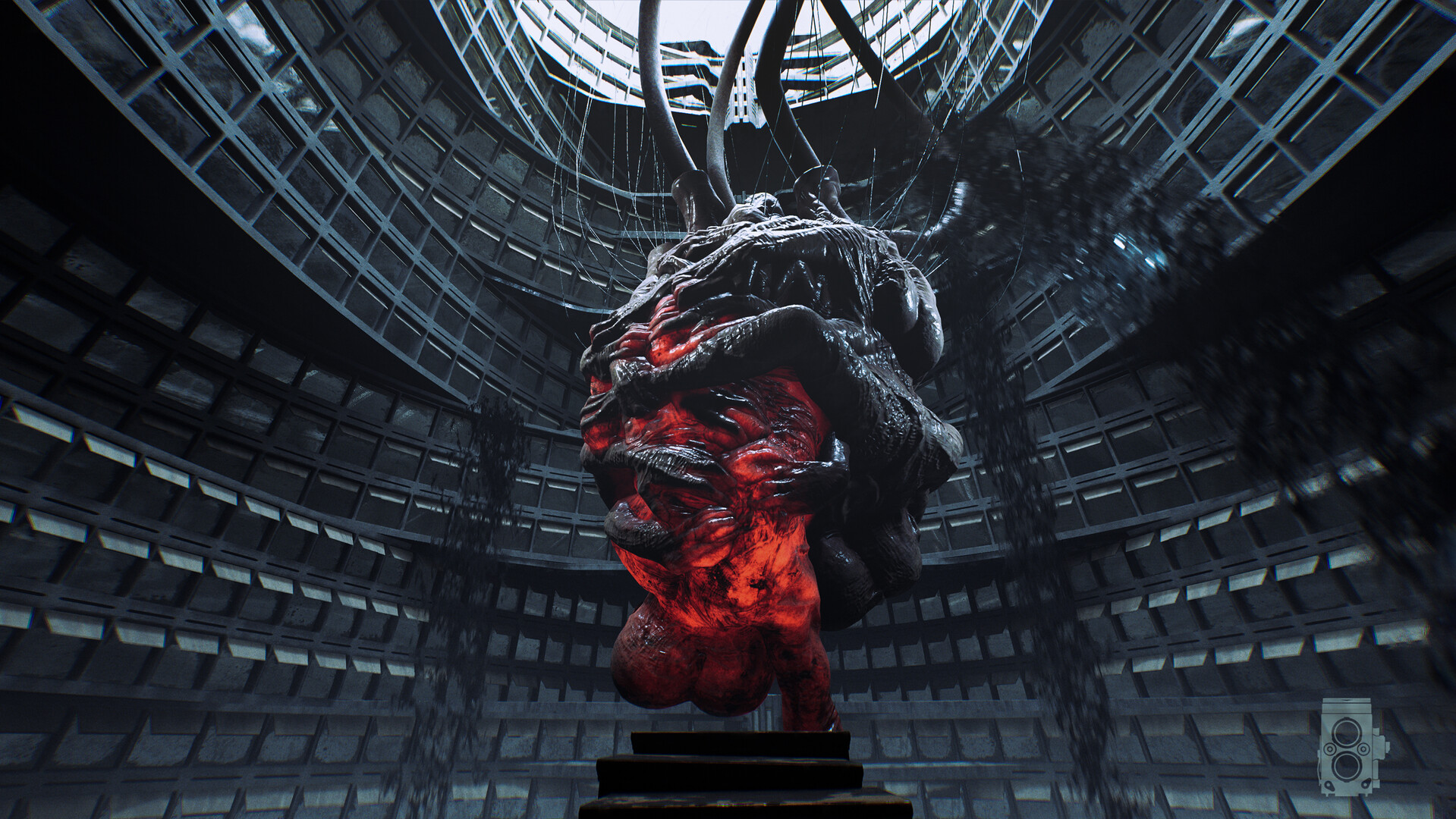
Driven by Narrative: A Deep, Twisting Storyline of Love, Loss, and Betrayal
KARMA: The Dark World doesn’t just throw cool gameplay at you—it tells a multi-layered, emotionally rich story that’ll stick with you. The plot slowly unwraps like a Russian doll, revealing not just corruption at the top of Leviathan, but a personal journey filled with pain, love, and family drama.
Daniel isn’t just an agent—he’s a man haunted by his past. As the investigation unfolds, he finds himself entangled in a massive espionage plot that forces him to confront uncomfortable truths about his own life, the people he thought he could trust, and the world he’s helped uphold.
This is not a feel-good hero’s journey. It’s a dark descent into the soul, with heavy themes like betrayal, grief, and the cost of blind obedience. The game doesn’t spoon-feed you answers either. You’ll have to piece everything together yourself—from memory fragments to subtle environmental clues.
And if you’re a fan of twists? Get ready. This game’s plot twists hit like a gut punch and leave you gasping for breath.
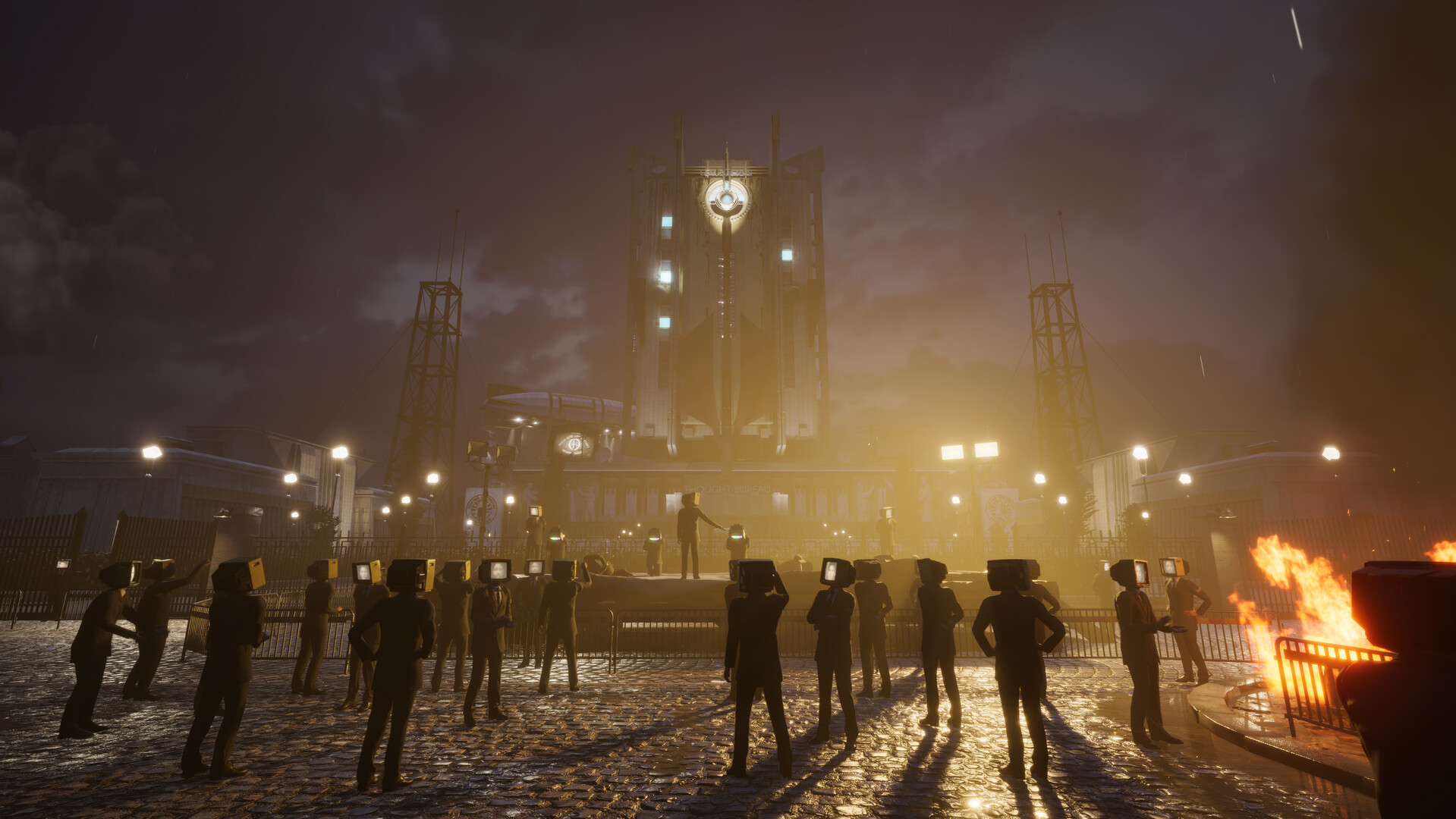
Powered by Unreal Engine 5: Next-Gen Visuals and Sound That Redefine Immersion
Now let’s talk eye candy. KARMA: The Dark World runs on the cutting-edge Unreal Engine 5, and it doesn’t hold back. The game leverages Lumen for dynamic lighting and Nanite for mind-blowing geometry detail. Every scene, from the brutalist architecture of East Berlin to the bizarre mental landscapes, looks absolutely photo-realistic.
And then there’s the sound. Oh man, the sound. With a haunting, original orchestral score developed in collaboration with Dolby Atmos, this game knows how to mess with your emotions. Every creaking floorboard, whisper in the shadows, and musical swell adds to the psychological pressure.
The motion-captured performances bring characters to life with unnerving realism. Even the way characters blink or fidget feels disturbingly human. It’s like watching a dystopian film unfold in real-time—except you’re not just watching. You’re inside it.
Release Date, Platforms, and Why You Shouldn’t Miss This Game
KARMA: The Dark World officially dropped on March 27, 2025, and it’s currently available for PC and PlayStation 5. Whether you’re playing on a high-end gaming rig or enjoying the haptics and 3D audio of the PS5, the experience is designed to completely pull you in.
So, why should you play it? Because this game isn’t just about solving puzzles or surviving jump scares. It’s a thought-provoking narrative experience that challenges the way we think about truth, memory, and authority. It plays like a dystopian novel written by Orwell and directed by Nolan, with gameplay mechanics inspired by the psychological depth of Kojima’s Death Stranding.
If you’re tired of shallow shooters or samey RPGs, this is your escape—ironically, into a world that’ll make you question everything.
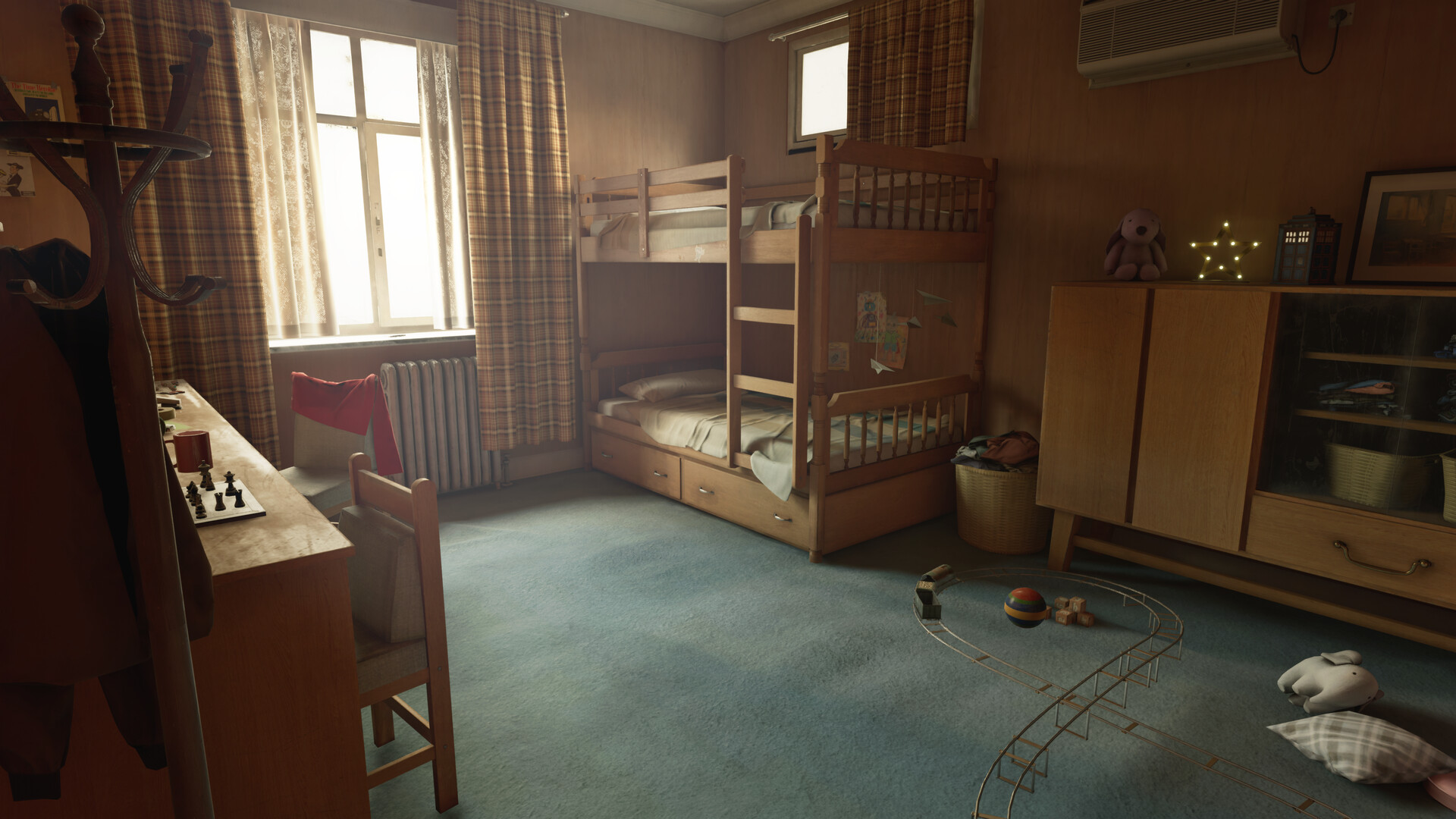
Conclusion
KARMA: The Dark World isn’t just another title on the release calendar—it’s an experience that redefines what it means to tell a story through video games. It doesn’t rely on cheap jump scares or flashy action sequences to hold your attention. Instead, it slowly pulls you in with its dark atmosphere, haunting visuals, and emotionally gripping narrative until you’re fully immersed—mentally, emotionally, and even philosophically.
At its core, this game is a deep exploration of the human mind, both as a setting and as a fragile, complex system. It makes you ask hard questions: Can we really trust our own thoughts? How much of what we remember is truth, and how much is just… rewritten to protect ourselves? These are the themes that KARMA isn’t afraid to confront head-on, and it does so with elegance, intensity, and stunning artistic vision.
But what truly sets this game apart is how it blends narrative with gameplay. It doesn’t treat story as an add-on or a series of cutscenes—it lives in the environments, the mechanics, the very act of exploration. Every corner of a distorted memory, every flickering light, every whispered phrase in the shadows is telling you something. It’s a masterclass in interactive storytelling that rivals the emotional depth of a prestige drama, the visuals of a next-gen blockbuster, and the philosophical punch of classic dystopian fiction.
And let’s not overlook the technical achievements here. With Unreal Engine 5’s Lumen and Nanite, and Dolby Atmos-powered sound design, this game doesn’t just play well—it looks and feels real. The level of immersion is so deep, it borders on uncomfortable at times. And that’s the point. It wants you to squirm. It wants you to feel what Daniel feels. To lose yourself, just like he does.
So if you’re someone who appreciates games that take risks, that push boundaries, and that make you feel something—truly feel something—then KARMA: The Dark World deserves a spot on your must-play list. It’s more than a psychological thriller. It’s a meditation on memory, control, and the thin veil that separates reality from illusion.
This isn’t just one of the most anticipated indie titles of 2025—it might just be one of the most important.
Dive in… if you dare.
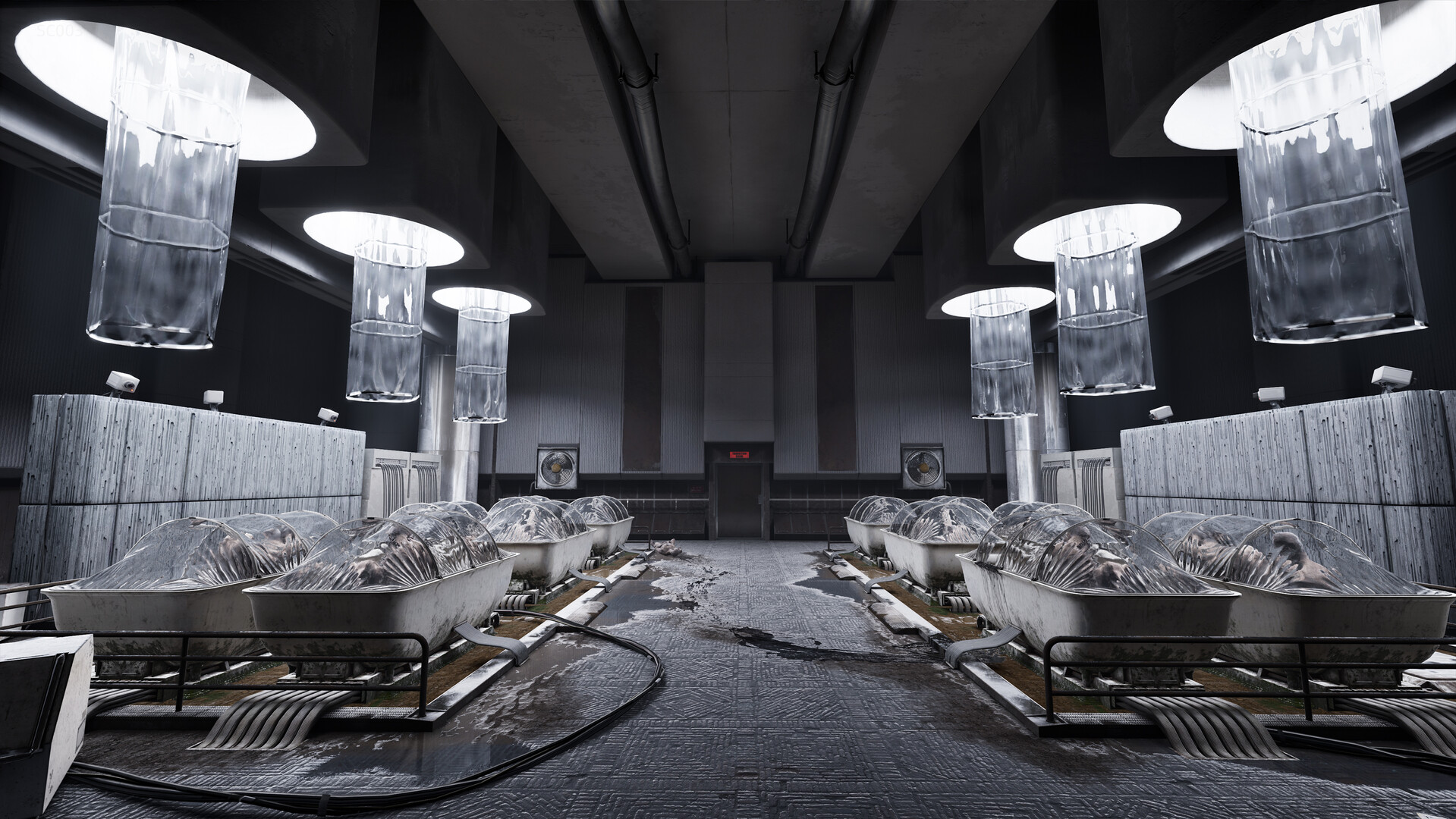
FAQs about KARMA: The Dark World
- Is KARMA: The Dark World an open-world game?
No, it’s not open-world. It’s a narrative-driven experience with tightly designed levels focused on exploration, puzzle-solving, and story progression. - Can I play this game on Xbox or Nintendo Switch?
As of now, KARMA: The Dark World is only available on PC and PlayStation 5. No official announcements for Xbox or Switch releases have been made. - How long is the gameplay experience?
Depending on how much you explore and engage with the story, it can take anywhere from 8 to 15 hours to complete the game. - Is this game suitable for younger players?
Not really. Due to mature themes like psychological trauma, government control, and surreal horror, it’s better suited for older teens and adults. - Does the game have multiple endings?
While details are still emerging, the game does feature choices and consequences, which influence certain narrative outcomes—adding replay value.